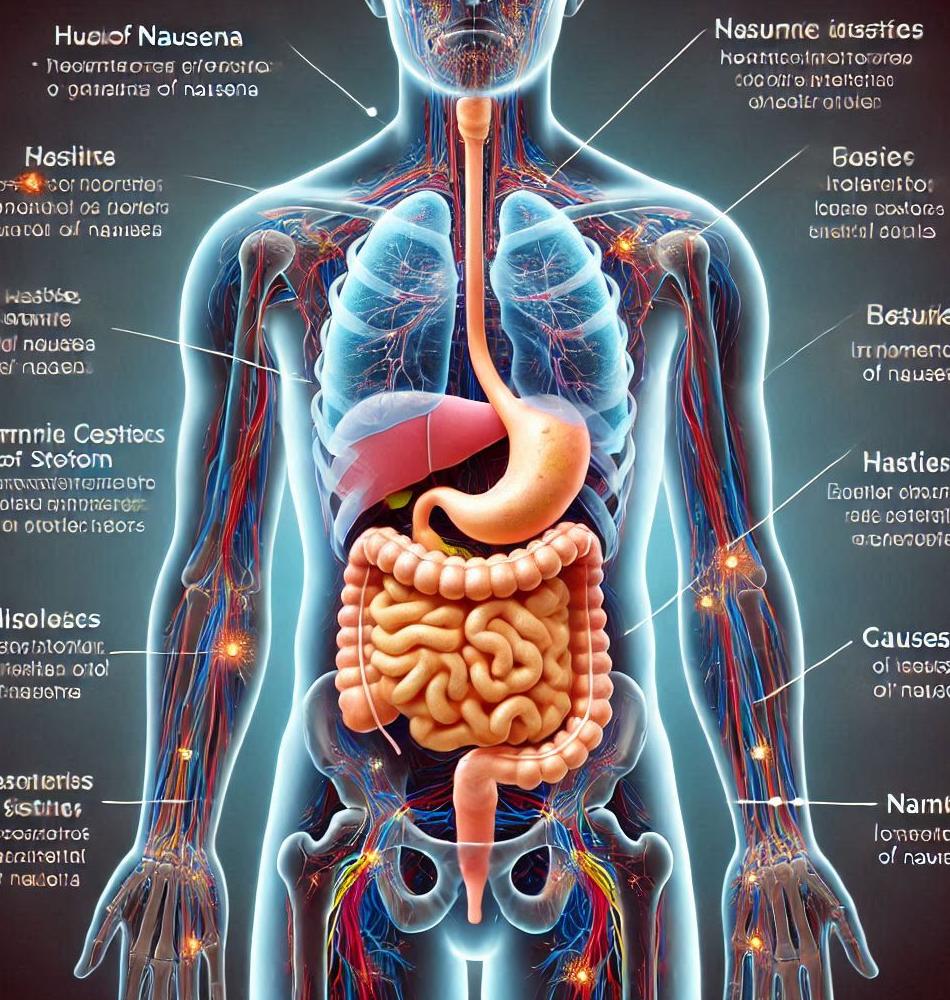Nausea is a word that we often hear in different contexts, but what does it really mean? Is it simply a feeling of unease in the stomach or something more complex? Nausea can be a transient issue for some, while for others, it represents a significant health concern. In this article, we will unpack the concept of nausea, explore its roots, symptoms, and causes, and discuss when seeking medical attention becomes necessary. Buckle up as we dive into this belly turmoil!
The Science Behind Nausea 🧬
What is Nausea?
Nausea is defined as a feeling of sickness with an inclination to vomit. It is not a disease itself but rather a symptom that could signal various underlying conditions. Nausea often presents itself in conjunction with other uncomfortable sensations, including dizziness, sweating, or even increased salivation. Although it can feel overwhelming, it is crucial to understand its nature and triggers.
The Mechanism of Nausea
At the core of nausea lies a fascinating interplay between the brain and the digestive system. The brain receives signals from the digestive tract that indicate something may be wrong, prompting the nausea response. Hormones, neurotransmitters, and the autonomic nervous system all contribute to this complex reaction. Understanding this cooperation helps demystify nausea and its triggers.
Causes of Nausea 🌍
Exploring the myriad reasons behind nausea can feel like an overwhelming endeavor, but fear not! Causes can be categorized into several key areas. Here we break them down:
Gastrointestinal Causes
Issues within the digestive tract are a primary source of nausea. Some notable conditions include:
- Gastroenteritis- Food poisoning- Indigestion- Peptic ulcers- Gastroesophageal reflux disease (GERD)Non-Gastrointestinal Causes
Nausea can emanate from other systems in the body, too. Non-digestive causes include:
- Stress and anxiety- Motion sickness- Migraines- Medication side effects- Hormonal changes during pregnancyEnvironmental Triggers
Sometimes, nausea arises from external factors, such as:
- Strong odors- Unpleasant sights- High-stress competitive environments- Excessive heat or humidityWhy Does Stress Play a Role?
Many of us experience lifelike scenarios - such as being near a tall building and feeling a wave of unease wash over us. Stress and anxiety can lead to physical symptoms like nausea, limiting our ability to focus and enjoy life. Finding effective ways to manage stress can thus be a game changer.
Symptoms of Nausea 📊
While nausea is often characterized by that discomforting wave in the stomach, it can manifest in various forms:
- Loss of appetite- Sweating- Salivation- Dizziness- Clammy or cold skinWhen to Seek Help?
Understanding when nausea necessitates medical attention can be crucial. Factors such as duration and accompanying symptoms play a vital role. You should seek help if:
- Nausea persists for more than 2 days- It is accompanied by severe headache- There is fever above 101°F (38.3°C)- Blood is present in vomit- Dehydration occurs (dry mouth, little to no urination)Managing Nausea 🩺
Managing nausea often involves a combination of lifestyle changes and home remedies, as well as medical interventions when necessary. Here are some tips on how to combat that queasy feeling:
Home Remedies
Before diving into over-the-counter solutions, consider these natural remedies:
- Ginger tea or ginger ale- Peppermint- Deep breathing exercises- Staying hydrated with clear fluids- Small, bland meals (think crackers or toast)Medical Treatments
If nausea persists or is severe, seeking guidance from a healthcare provider is essential. Potential medical solutions may include:
- Prescription medications for nausea- Treatments directed at underlying conditions- IV fluids for hydration in extreme casesFrequently Asked Questions about Nausea ❓
- What is the difference between nausea and vomiting?- Can anxiety trigger nausea?- Is nausea a sign of a more severe health issue?- How long should nausea last before I worry?- Are there specific foods to avoid when feeling nauseous?Conclusion 🌟
In conclusion, understanding nausea can empower individuals to manage their health better. While nausea can arise from numerous causes and manifest in various ways, connecting the dots between symptoms and triggers can pave the way for effective management. Always remember that your body communicates through symptoms, including nausea. Whether it's an occasional nuisance or a recurring issue, being proactive about your health will lead to better outcomes. So next time that uneasy feeling washes over you, take the time to listen to your body and respond appropriately.

